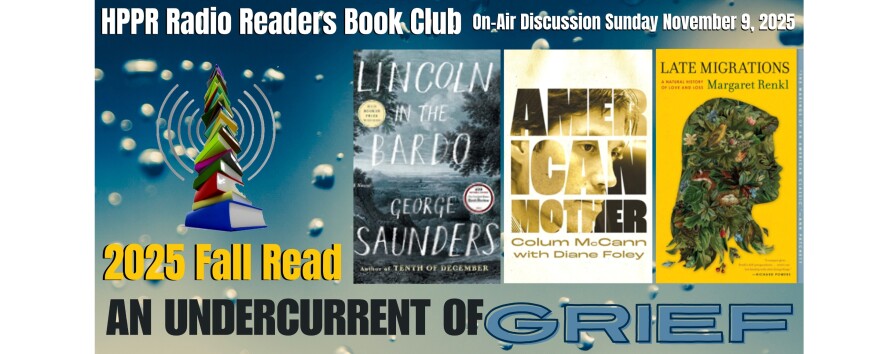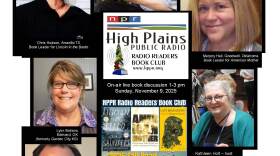This book may contain language, sexual content, and themes of grief and loss, which may be challenging for some readers. Reader caution advised.
Aid and Comfort
by Marjory Hall
Hi from Goodwell, Oklahoma! I’m Marjory Hall with a BookByte for our 2025 Fall Read. As I read American Mother by Colum McCann and Diane Foley, I initially did not give any particular thought to Foley’s being a nurse by profession. It is not an unusual calling; my sister-in-law is a nurse. I have a whole department of nurse colleagues who teach the profession to the next generation.
Later though, on reflection, I changed my mind. Nursing is an unusual calling. It is a profession in which the practitioners know that their efforts might never be recognized by those they treat. An unconscious accident victim does not remember the capable hands that served them, but that does not diminish the diligence of the nurse’s care. American Mother can be thought of as a sort of medical file in which Foley charts her treatment of Alexanda Kotey, her son’s murderer.
Foley dresses carefully for her meeting with Kotey, seeking just the right balance in her appearance that will convey her warmth but not suggest weakness. This is exactly what nurses do as they prepare for work. Whether the patient will remember it or not, nurses present themselves as competent and professional above all else. Like a nurse entering a patient’s room, Foley meets Kotey when he is at his most vulnerable. Wearing shackles and a prison jumpsuit, Kotey is far from home, surrounded by those who represent the people he wronged. Foley does not take any sort of advantage of his situation to accuse or denounce Kotey for his crimes. She, instead, reports a catalog of details about his appearance, perhaps unconsciously assessing him as she would a new patient, and she speaks to him kindly, inquiring whether he has been well-treated.
Foley’s narrative voice throughout the book is objective, reflecting on the life experiences that converged to bring James Foley and three other Westerners into the orbit of ISIS in 2014. She makes a point of noticing the events in Kotey’s life that might have been the causes of some of his bitterness. After all, diseases have causes and identifying them is the first step in healing. Also objectively, she notes the fact that Kotey was not blameless in his life. There are some maladies people can prevent, and she points out to him a time when he, himself, could have rectified an injustice. A reader cannot help but think that Foley planted seeds that might one day help Kotey objectively consider his life, whether he noticed it at the time or not.
There is a balance in Diane Foley’s approach to Alexanda Kotey that is apparent in the entirety of the book. I don’t know if Foley’s innate sense of justice made her a natural caregiver or if her nurse’s training taught her justice. However it worked, this approach is what, for me, raises American Mother above a memoir to a searching examination of the nature of evil and conflict in the world. The pain and loss Foley felt is present on each page, but there is also hope on each page, hope for healing.
I’m Marjory Hall from Goodwell, Oklahoma, with a Book Byte for Fall, 2025.










